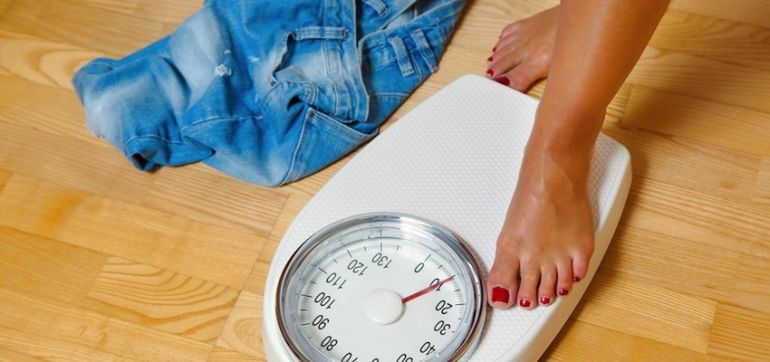The Open Secret Of Weight Loss Calories In Calories Out
Extra body weight is being perceived as an epidemic in the United States. The latest data from the National Center for Health Statistics show that 30 percent of U.S. adults 20 years of age and older - over 60 million people - are obese. About 60-65 percent people in the U.S. alone are overweight. This increase is not limited to adults. The percentage of young people who are overweight has more than tripled since 1980. Among children and teens aged 6-19 years, 16 percent (over 9 million young people) are considered overweight.
One common measure to determine ideal body weight is body mass index (BMI), which is a ratio of height and weight multiplied by a factor. This ratio should be less than 25 for both men and women. A BMI between 25 and 29.9 is considered overweight, and a BMI equal or over 30 is clinically obese. Obesity has also been linked to other nutritional disorders, such as high cholesterol, high blood pressure, diabetes, and cardio-vascular diseases. Shockingly, the numbers of teen obesity in the United States is also leading to teen diabetes.
One factor that is chiefly responsible for the accumulation of extra body weight among Americans is the fast food culture. These fast foods chiefly include burgers, sandwiches, fries, pizza and soda. All these foods are high in calories, fat, sugar, and salt ? the main enemies of ideal body weight and optimum health. They are also low in essential nutrients (vitamins, minerals and trace elements) and fiber ? the friends of good health and general well being. So why is this fast food culture overpowering us? Face it - any food that is high in fat, sugar and salt tastes so good. And fast food well qualifies for this category. In addition to the taste temptation, fast food is also readily available and unfortunately cheaper than the healthy food. The other factors that contribute to excess body weight are lack of exercise, sedentary lifestyles, and improper eating habits leading to decreased metabolism, certain medical conditions and their drug after-effects.
Weight loss, weight gain and weight maintenance is no magic. It is simply a ratio of calories-in and calories-out. By ?calories-in? we mean how many calories you are obtaining from your food on a daily basis, and by ?calories-out? we mean how many of these calories you are burning in the same day. In order to lose weight, your calories-out should be more than your calories-in everyday until you reach your weight loss goals. For maintaining weight, there should be no significant difference between your calories-in and calories-out on a daily basis. For gaining weight (for example, for underweight people), your calories-in should be greater than your calories-out until your reach your desired body weight. It is recommended that a big part of the calories-in for the people trying to gain weight should come from protein sources, so they gain muscles rather than body fat.
Now, the question is how do we calculate calories-in and calories-out. Your calories-in can be calculated with the help of a dietician, who would calculate the calorie equivalent of the food that you consume in general on a daily basis. There are also software available to do the same calculations that you can search over the internet. The calories-out are in general more than your resting metabolic rate (RMR), which is the amount of calories that your body burns without any activity. Many dieticians and gymnasiums offer the RMR calculation tests. Also, there are software available to calculate your RMR that you can search over the internet. In order to lose weight, the general rule is that you need to consume fewer calories per day that your body burns naturally anyway. Either with the help of a dietician or these nutrition software, you can come up with certain foods or their quantity to cut down from your daily diet in order to start losing weight. At this point, it is extremely important to know that you only need to cut down on your calories-in, but you still need all other nutrients, such as vitamins, minerals and fiber, for optimum health. If your weight loss plan includes cutting down on certain foods and / or their quantity, it will be a good idea to include the supplements of these vitamins and minerals to ensure optimum nutrition.
It should be noted that carbohydrates, fats and proteins provide the calories in the food. So obviously one has to cut down on these nutrients in order to restrict one's calorie intake. When it comes to carbohydrates, you should cut down on the bad carb intake that are high in calories and also burn fast making you hungry again. The bad carbs are mainly derived from processed foods and sweet snacks and desserts, such as, candies, cookies, chips, doughnuts, brownies, Danish, etc. Rather, these bad carbs should be substituted with good carbs. The sources of good carbs are whole grains like rice, wheat, oat, barley, whole grain cereals, whole grain breads, fruits, vegetables, etc. The nutrition recommendation is that less than 30 percent of your total calorie intake should come from fat.
This fat consumption should be lower in saturated fat and should include unsaturated fats, such as polyunsaturated fats and monounsaturated fats, as they are beneficial for heart and general health. The good sources of these beneficial fats are vegetable oils, fish oil and olive oil. As far as proteins are concerned, about 40-50 percent of the human body mass is composed of proteins. Therefore, one has to be really careful when it comes to protein nutrition. One should cut down on red meat foods that are although high in proteins, are also high in fat. One should increase the intake of vegetarian sources of proteins, such as soy, beans, pulses, as they are generally low in fat. The good sources of animal proteins are chicken and fish as they are in general low in saturated fat and high in unsaturated fats, such as omega-3 fatty acids.
-
5 Foods That Can Save Your Life and Other Hot Health Stories for the Week
Here are the top 5 health news stories for the week. * 5 Foods That
-
Tips For Managing Multiple Ebay Auctions.
It can be very time-consuming to keep your auctions ticking along,
-
What to Look for in an Effective Weight Loss Program
Weight loss is an elusive goal for many
-
Are All Natural weight Loss Plans Beneficial to Your Health?
All natural weight loss plans sound almo
-
Meet Our Feel Great Weight Dream Team
From Health magazine Meet our D
-
Bodybuilder Beginner Basics
Let’s face it, we live in an image conscious society, not a h
- DON'T MISS
- How To Properly Hydrate When Losing Weight
- Weight Loss Success: 7 Slim Down Secrets
- Your sleeping position affects your brain and overall health
- 6 Reasons You’re Not Losing Weight
- Wondering Whether An Easy Fast Weight Loss Is Possible At All Or Not ?
- BodyRock Sweatography: The Difference of Diet
- Quick Weight Loss Tips - Weight Loss Tips
- From Whose Plate Are You Eating?
- Dieting To Build Muscle
- Cutting Through The Hype To Find The Best Diet




